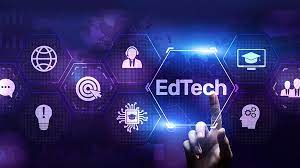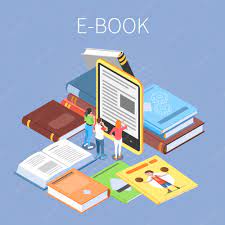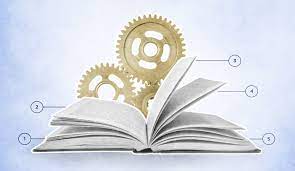
Education can be considered as the bedrock or foundation of development in any society or country. The involvement of education-centered technology is fast taking education in Nigeria to another level entirely, making things that were somewhat impossible in the past to become possible today. Technology is becoming more acceptable to Nigerians with many more people seeing the many benefits it offers.
Technology is fast transforming how parents, teachers and students see and handle education. It has improved the way teachers disseminate academic information to their students and has also enhanced the way students learn.
Even government agencies are not left behind in the effort to push education forward consequent of the involvement of technology. For example, the government increased its budgetary allocation for education by 26% in 2021 from what it was in 2020.
Edtech is here to stay and its impact on education in Nigeria is already becoming obvious. Since it has proved itself to be highly beneficial, there is a strong indication that its popularity and acceptance will increase.
How Nigeria can benefit from Edtech
You will find so many Edtech companies in Nigeria today as a response to and evidence of its wide acceptability in Nigeria. These companies offer several education-related services, but using technology as the driver. Their services can be directed at the education institutions or the students, depending on the purpose that the Edtech products are designed for.
The available Edtech products in Nigeria can be simple tutoring services or even comprehensive education solutions. Education helps school managements to handle every aspect of the school operations, irrespective of the number of students they have to deal with. It can also help government agencies to better handle the education sector, ensuring that nothing is left without a proper care.
They can use Edtech products to handle attendance of students and the promptness of teachers. They can also use Edtech products to handle payroll so that teachers are paid on time and appropriately.
Even parents are not left behind; school authorities can use Edtech to communicate with parents and carry them along regarding the progress of their wards. School authorities can even forward the grades of their wards to them on each test via Edtech products. So, everyone stands to gain a lot from these products.
If parents are able to monitor their children’s performance via Edtech products, there is a higher chance of an improved performance by the children. Knowing that their parents are monitoring their progresses can compel many students to sit up and get serious with their schoolwork.
School authorities can also be more efficient in managing their institutions since they can use Edtech products to automate the entire operations of the school. This way, they can teach students better and turn them to the future leader they are supposed to be. Do not also forget that Edtech products make it possible for students to learn from their remote locations without having to visit the conventional school.
How far has Edtech gone in Nigeria?
We can consider Edtech as a movement and it has gained a lot of ground in the country already. Nevertheless, a lot of discussion is still ongoing regarding this concept. Even at that, there are many schools in the country who are already utilizing what Edtech has to offer. For example, some schools are using Edtech to manage payroll, attendance and other things.
Many of the schools that have quickly taken advantage of Edtech products in Nigeria are already reaping the benefits. Many of them have claimed that they recorded an increase in their productivity since the integration of education technology helps them to better handle their school operations, reducing how long they have to spend on various activities.
Digital leaning tools and strategies are among the mostly adopted Edtech products in Nigeria today. The tools have reportedly boosted the performance of students in various education institutions in the country, helping them to boost efficiency and productivity. Many of the currently adopted Edtech products also assist with teacher development and training, enabling teachers to get updated without going through much stress.
These days, institutions conduct what is called Computer Based Tests (CBT). This is yet another top-line Edtech product in Nigeria and it is even being used by the government to conduct university entrance examinations. CBT generates results for each student almost immediately after the student finish writing the test. As a result, the student will not have to wait forever before UTME results are released.
Challenges facing Edtech in Nigeria
From the information above, it is obvious that Nigerian education system s seriously benefiting from Edtech products and the benefits can be taken to an entirely new level in the future. Nevertheless, there are certain challenges facing the adoption of Edtech in the country and we will mention some of those challenge sin this section of the informative write-up.
Poor funding is one of the major challenges facing Edtech adoption in Nigeria. The government does not provide adequate funding to transform Nigeria’s education system to the next level of progress via Edtech adoption.
The infrastructure available also does not encourage the adoption. Many institutions will like to used projectors and even get updated information for their students while classes are ongoing so that the students can be adequately informed.
It is, however, unfortunate that there are no adequate equipments to make this happen. Computers and projectors are needed for this top line teaching strategy and these equipment are lacking in many institutions. Even in places where the equipment is available, the institutions may be plagued with lack of power supply. You cannot adopt products adequately if your institution lacks electricity.
Before Edtech products can be adopted fully in the Nigerian education system, there is need to properly train teachers on how to use these tech products and systems. It is unfortunate that many Nigerian teachers are still analogue in their ways of life and outlook on teaching. Many of them are equally averse to change. Getting the analogue-oriented teachers to adopt technology for teaching can be challenging.
The government will also have to spend a lot of money to upgrade the knowledge of these analogue teachers. Considering the rate at which Nigeria borrows money these days, getting funds to invest in technology integration into the country’s education systems may not be feasible.























